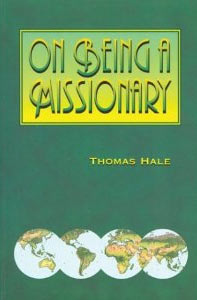 Preparation
Preparation
It could be my own lack of self-reflective abilities (hopefully not) or the fact that so many of the questions in this chapter have been settled for us already, but I did not find this chapter tremendously useful to us in our present situation. Nevertheless, I forge ahead with the hard-hitting commentary that you’ve, doubtless, come to expect.
The chapter opens with a discussion of the training that most missionaries will need before they can get to the field. These fall broadly into three categories–professional training, field-specific training, and general missionary training. In terms of our professional training, I can confidently say we are both prepared and not prepared. Chloe is experienced in accounting, but not familiar with the Karamoja Mission’s practices (quick quiz: how many Ugandan Shillings to an American Dollar?). I, likewise, have a very wide pool of knowledge in many of the areas I’ll be working in (wear gloves when throwing or catching panes of glass), but diving is prohibited. Overall, we’ll have plenty to learn on the field.
The same goes for our field-specific training. I’ve been to Karamoja twice previously. I’ve talked at length with the missionaries there about local culture, politics, and the methods and goals of the missionary work there. Chloe and I have been working at learning the language (verb goes before the noun–or as they say in Karamojong, goes it, the verb, before it, the noun). We’ve learned that if you want to have a serious conversation with someone, you hold their hand, that it’s not outrageous for someone you’ve just met to ask you for plane tickets to America, and that the ’90s will soon be becoming fashionable in Karamoja (but going nude is timeless). Despite this great trove of knowledge, there are numerous subtleties and cultural sensitivities that we can only learn in practice.
Hale talks lastly about general missionary training, pressing the need for knowledge of the Bible, a healthy ability to self-reflect, skill in cross-cultural communication, and the ever-important ability to manage interpersonal conflict. This chapter seems to be overwhelmingly geared toward those who are striking out in their goal to become missionaries without much idea of what they will do or where they will end up. In many ways, it’s a tremendous blessing that we’ve been able to rub elbows with the missionaries there already. We know the personalities that we are about to get entangled with, and they’ve had a chance to size us up (and have asked for us to come anyway).
The rest of the chapter is devoted to choosing a missions organization, and speaking in churches to raise support. Needless to say, choosing an organization was an extremely easy choice for us. Our fundraising efforts were also blessed. The one part of this chapter that stuck out to me was not new, but bears repeating. Hale reminds the reader that speaking in churches (or talking to individuals or sending letters) is not simply about raising funds, but is about building the web of connections that binds believers and churches to the mission field. The goal is to increase the fervency and precision of prayer for missions and to enlarge the hearts of believers to the expansion of the Kingdom of God.
Since we’re on the subject of prayer, this chapter left a number of needs pressing me. Please pray that our ability to share the Gospel in the Karamojong culture will be increased (through our own growing cultural understanding as well as the power of the Spirit). Pray that we will go with humility and grace as we live in close quarters with the other missionary families (ask Chloe how easy it is for her if you want a laughing-to-keep-from-crying moment). Pray, above all, that God will raise up in us the ability to complete the work He has for us to do.